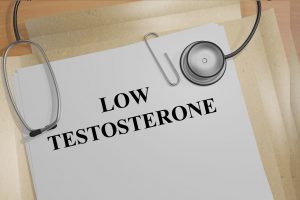
The study was conducted in Milan during the first wave of coronavirus in 2020. It found that the lower the level of testosterone found in men, the higher the likelihood that patients would become severely ill and die from the virus.
For the study, Andrea Salonia and his research team from the San Raffaele University Hospital in Milan compared the records of 286 male COVID patients who were admitted to the hospital to 305 healthy male volunteers who gave blood between Feb and May 2020.
The research team analyzed the blood samples for levels of male hormones, including testosterone. Testosterone is the primary sex hormone involved in the male reproductive system. It is measured in nanomoles per liter (nmol/l), and 9.2 or below is the threshold for low testosterone, termed hypogonadism.
The study showed that nearly 90 percent of the patients had testosterone levels below the threshold, compared to 17 percent of the healthy volunteers. The levels in all patients were significantly below the threshold with an average of 2.5 nmol/l.
The patients who had mild symptoms or who were admitted to the hospital had slightly higher testosterone levels (between 3-4 nmol/l) compared to those admitted to ICU, or patients who died of the virus (0.7-1 nmol/l).
The outcomes were adjusted for pre-existing conditions and body mass index (BMI), but the clinical outcomes still showed a stark relationship between hormonal profiles and severe symptoms.
The Connection to Male Hormones
Professor Salonia spoke about the study saying, “At the start of the COVID pandemic, we were seeing far more men than women coming to hospital and suffering very severe forms of the disease. We immediately thought this might be related to male hormone levels, particularly testosterone.”
“But we never expected to see such a high proportion of COVID-19 patients with these extremely low levels of testosterone, in comparison to a similar group of healthy men. The relationship is very clear: the lower the testosterone, the higher the severity of the condition and likelihood of death. I’ve never seen anything like it in my 25 years in the field.”
This research is limited in that the team does not have data on the testosterone levels in patients before they contracted COVID-19. They are unable to determine if low testosterone was a pre-existing condition that exacerbated the virus, or whether it was caused by the SARS-COV2 virus.
Researchers stress that we have learned a lot about the virus since the early days, but there is still a lot to study. They stress that additional studies are needed to find potential impacts from COVID-19 on men’s health.
The findings of this study will be presented at the European Association of Urology congress, EAU21, which runs this week from July 8-12. The EAU is Europe’s largest urology conference bringing together the best in the field to discuss the latest research and medical developments linked to the urinary tract and male reproductive system.